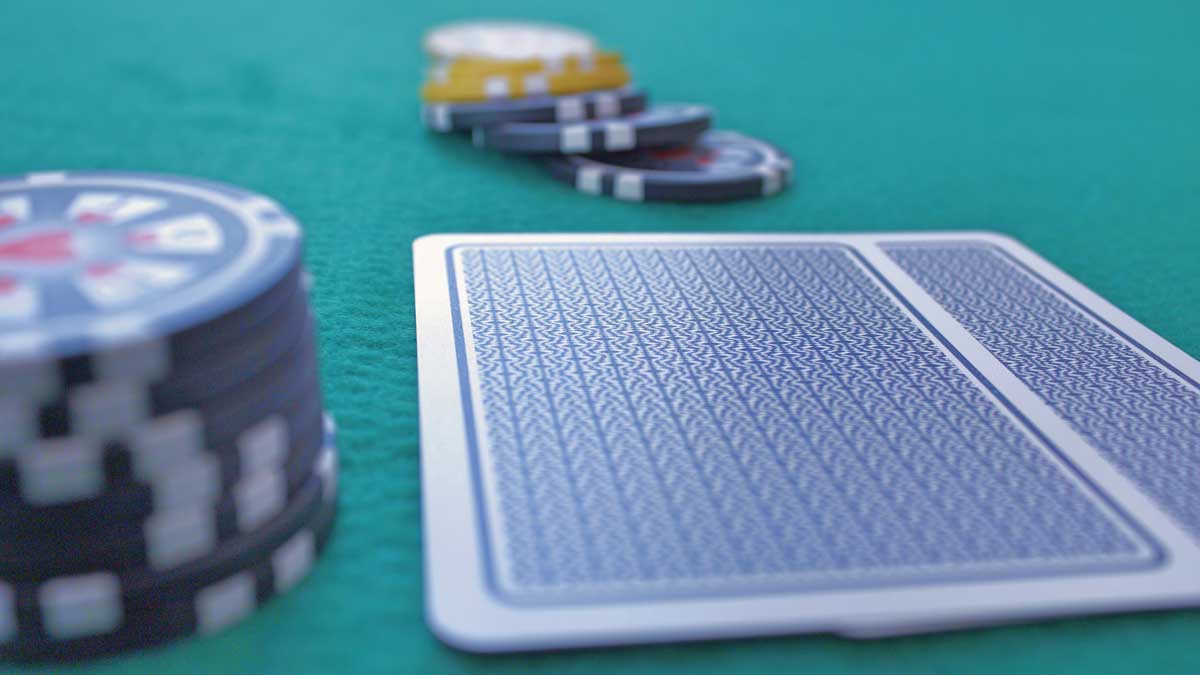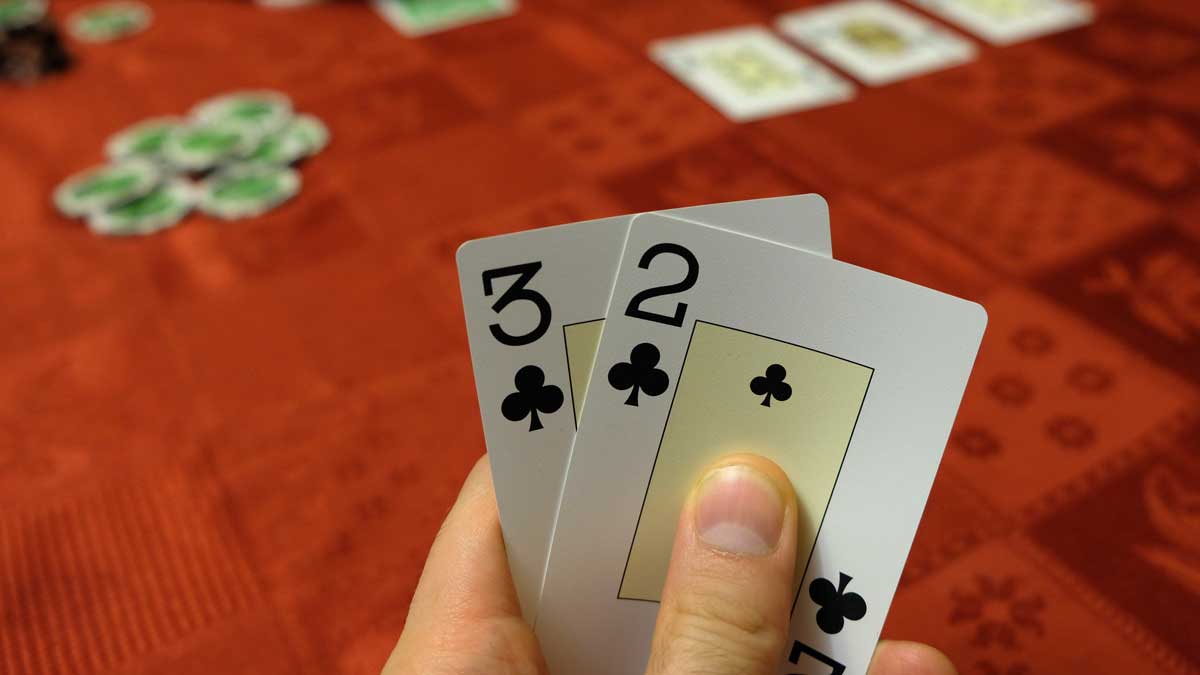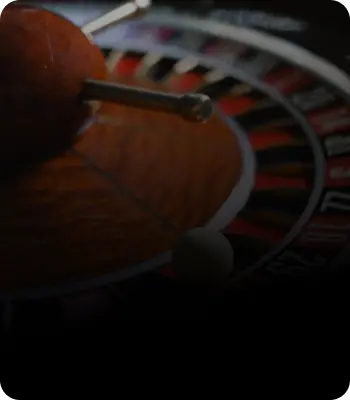
- Prop Bet iis7站长之家
- Limping
- Raising Too Often On The Button
- Being Too Passive In The Blinds
- Not Paying Attention To Other Players
- Overvaluing Small Hands
- Over-Reliance On Suited Connectors
- Failing To Protect Your Hand
- Calling Too Many Raises
- Failing To Fold At The Right Time In The Betting Round
- Additional Tips & Advice
- The Bottom Line
We all make mistakes. Even the most experienced live poker pros drop the ball from time to time. But newcomers to poker often succumb to these five specific errors. Cut them out and help raise your game to the next level. In this article, we will help you adjust your poker strategy and keep your confidence during each betting round.
Failing To Understand Positions
Position is one of the most important concepts in poker. Every hand is stronger when you are in the right position. If you can act later in the hand, there are fewer people behind you, so you have less to worry about. When you are last of all to act, you are at a significant advantage over your opponents. Here are all of the different positions you can find yourself in when playing Texas Hold'em with six players at the table:
Under The Gun (UTG)
The first of the early positions, also known as under the gun, is when you are the very first player to place a bet. It's a difficult one to be in, as you have no way of gauging the level of confidence of other players by observing their bets.
Big Blind
The second player to the left of the dealer is called the "big blind." As the big blind, you can pretty much set the mood for the entire betting round by raising the pot.
Small Blind
This is the first middle position. Players who are in the small blind find themselves at a slight advantage over the UTG or big blinds as they already have a pretty good idea of the other players' confidence.
Middle Positions
You're in one of the middle positions if you're situated halfway from the dealer. Most players raise when they're in the middle, as it gives them a chance to pick up the blinds after the betting round pushes the early bettors to fold.
Cutoff
The first of the late positions is known as the cutoff because it allows the player to raise and cut the advantage of the final player by doing so.
Button
This is the player who bets last and is sitting to the right of the dealer. As the button, you're in the best position, as you already know all the other players' bets and can make the most informed decision.
You must adjust your range according to your position. In an early position, you simply have to tighten up. Failure to do so will lead to you bleeding chips. When you have the positional advantage, you need to widen your range. Picking up the blinds (winning the money bet by players before you as they fold after you raise) preflop is an important part of the game, and it happens much more frequently when you don’t just sit and wait for premium hands.
Related: Understanding Poker Positions and Why It Is Important
Limping
 If you are the first to enter the pot and you do so with a flat call of the big blind, this is known as limping or open limping. It is an absolutely terrible play, and you must cut it from your game immediately for several reasons. Here’s why.
If you are the first to enter the pot and you do so with a flat call of the big blind, this is known as limping or open limping. It is an absolutely terrible play, and you must cut it from your game immediately for several reasons. Here’s why.
First of all, it sends a terrible message to your opponents, who most likely have at least some ideas about the game. It exposes you as a weak and probably inexperienced player, giving them permission to be more aggressive towards you with a much wider range. That is never good.
But why is limping preflop such a bad mistake? Well, first of all, the blinds are dead money, and you’re not even trying to pick it up by raising. You can’t win a pot pre-flop with a call. Secondly, limping does nothing to thin the field. If several others call behind you, you’re now contesting a multi-way pot, meaning your hand’s equity has declined, even if you have a very strong hand. The more people involved, the worse your chances are of winning a showdown.
And finally, you’re just making it much easier for the opponents behind you to play the pot in the first place. Your additional chips mean that their pot odds increased, thus encouraging them to make a play with average hands against your perceived weak range. If you're playing after the blinds, it's a good strategy to raise in order to thin out the opposition.
Raising Too Often On The Button
We’ve just highlighted two important common preflop mistakes, saying that you should loosen up in a late position and that it’s better to show aggression. And that’s true, for the most part. However, many new players, when situated in the later positions, take this too far when on the button.
While being last to act in the hand is clearly an advantage, modern poker is more aggressive than it’s ever been. More experienced players will expect you to raise their blinds when you are in a late position and will be ready to 3-bet you. If you opened with a speculative blind stealing hand, you’ll have to give it up. If it keeps happening, this will hurt your table image and cause you to leak chips.
Depending on the exact makeup of your table, raising preflop from the button anywhere between 40% and 60% of the time seems like a fair amount. Of course, you shouldn't be too soft all of the time, but always be wary of the mood at the table and be careful not to get too carried away.
Being Too Passive In The Blinds
 A lack of aggression in the blinds is another common preflop mistake in new players. Take the big blind, for instance. Since it will cost you less than the others to call, your pot odds are likely to be good. At preflop at least, as you will be the last to act and therefore know exactly where you stand.
A lack of aggression in the blinds is another common preflop mistake in new players. Take the big blind, for instance. Since it will cost you less than the others to call, your pot odds are likely to be good. At preflop at least, as you will be the last to act and therefore know exactly where you stand.
This is a particularly strong position to be in when everyone folds around to the small blind, and they open. You can comfortably widen your calling range and defend your big blind frequently.
Similarly, players are often too tight when playing preflop in the small blind. If it folds round to you, there’s a golden opportunity to pick up the dead money in the pot. Limping means that you’ll have to play the rest of the hand out of position, giving you more opportunities to make expensive errors. Assuming you don’t get raised preflop, that is.
Not Paying Attention To Other Players
While there are many important rules of thumb that will serve you well, poker is not just a game for robots. It’s about people, personalities, and emotions. It’s crucial that you pay attention to the characteristics of your fellow players.
For example, stealing the blinds is a common part of poker. But it’s far easier to pick them up from a known passive player than against a loose maniac. Although blind stealing is a must, you would be foolish to relentlessly pursue a strategy that you know is going to fail and cause you to lose money.
Particularly in online micro-stakes games, where there are so many grinders who are multi-tabling a large number of games. They’re just not paying attention, and their near-automated mindset means they fold their blinds way too often. Pay attention to these players and make an extra effort to raise them.
Similarly, in live games, people are often there for the social element. Someone who travelled to play a recreational game and have fun is not going to give up their blinds preflop very easily. They are there to play, so tighten up your opening range against this type of player.
It’s not just about players in the blinds, of course. You should constantly be aware of your opponents in all seats at all times. Paying attention will help elevate your poker game to the next level.
Overvaluing Small Hands
One of the most common preflop mistakes that players make is overvaluing small hands. While hands like 2-2, 3-3, and 4-4 may seem tempting to play, they are often not worth the investment. The only way these hands can be profitable is if you hit a set on the flop, which happens only around 12% of the time.
In addition, small pairs are difficult to play post-flop, especially if you are up against a larger pair or overcards. If the price to see the flop is too high, it is best to fold and wait for a better hand. Overvaluing small hands can lead to making poor decisions post-flop and losing more money in the long run. Therefore, it is crucial to evaluate the strength of your hand realistically and fold it if it is weak.
Over-Reliance On Suited Connectors
 Another frequent preflop mistake that you can make is relying too much on suited connectors. Suited connectors are hands that have the potential to make a straight or a flush, making them appear valuable. However, players often overestimate their value, leading to costly mistakes. You need to remember that playing suited connectors is not equivalent to making a winning figure post-flop.
Another frequent preflop mistake that you can make is relying too much on suited connectors. Suited connectors are hands that have the potential to make a straight or a flush, making them appear valuable. However, players often overestimate their value, leading to costly mistakes. You need to remember that playing suited connectors is not equivalent to making a winning figure post-flop.
Suited connectors can be difficult to play post-flop, and they often don't connect with the board, leaving you with a weak hand. It is best to play these hands cautiously and only when you are in a late position, as you can see the flop cheaply and have the potential to make a strong hand. Over-reliance on suited connectors can lead to making bad decisions post-flop and losing more money in the long run. Therefore, it is important to evaluate the strength of your hand realistically and not overvalue it just because it is suited.
Failing To Protect Your Hand
Protecting your hand is a vital part of successful poker play. Failing to protect your hand means not taking action to ensure that you don't lose the pot. Many players make the mistake of playing too passively, allowing their opponents to take control of the pot.
For example, if you have a strong hand like a top pair, you may want to bet or raise to discourage your opponents from drawing to a better hand. Betting can also help you extract value from weaker hands. It is especially important if you are playing against loose players who like to bluff. By being aggressive when you have a strong hand, you can make your opponents pay to see the next card, increasing your chances of winning the pot.
As always, you should be wary of getting carried away when protecting your hand. Making the decision to call can often be the right one, especially if you have a good hand. However, calling too often early on in the game can be a giveaway sign of a player who's hesitant about their cards. If you're in a good position and you're holding a half-decent hand preflop, raising is often the best way to protect your cards and add to their perceived value.
Calling Too Many Raises
Calling raises can be a costly mistake, as it can be difficult to win the pot when you are out of position. Many players make the mistake of calling too many raises, hoping to hit a lucky flop. However, calling too many raises can lead to making poor decisions post-flop and losing more money in the long run.
You should avoid calling raises unless you have a strong hand or believe that they can outplay their opponents post-flop. It is important to consider the strength of your hand, your position at the table, and your opponent's tendencies before deciding whether to call a raise or not.
Failing To Fold At The Right Time In The Betting Round
To paraphrase Kenny Rogers, it's important to know when to hold your cards, but it's equally crucial to know when to fold 'em. Many new poker players get caught up in the idea of winning, especially when they're holding onto a seemingly strong pair, and they get too certain of their impending victory. You can never be sure that your hand beats every other player's, no matter how good it may seem (well, unless it is a royal flush).
It is essential to remember that folding is not a sign of weakness but rather a strategic decision that can save you money in the long run.
Oftentimes, you might be tempted to keep playing even when you've got an obviously weak hand. Another scenario where many players struggle with the concept of folding is when they're holding onto weak hands for too long in the hope of hitting a miracle card.
When playing poker, it is crucial to evaluate the strength of your hand and determine if it is worth investing more money in the pot. If your hand is weak, it is best to fold and wait for a better opportunity. Don't fall into the trap of chasing losses in hopes of recouping your money by continuing to play a weak hand. However, this is a mistake, and it is important to fold and cut your losses when the situation calls for it.
Additional Tips & Advice
Keep A Cool Head
 Poker is a luck-based game, but you can help your luck by using various strategies and avoiding the common rookie mistakes we've outlined above. Whether you're in the big blind position, wondering how to react to an open raise, or don't know how to play when dealt marginal hands, remaining calm and collected will help you apply our tips in the right way.
Poker is a luck-based game, but you can help your luck by using various strategies and avoiding the common rookie mistakes we've outlined above. Whether you're in the big blind position, wondering how to react to an open raise, or don't know how to play when dealt marginal hands, remaining calm and collected will help you apply our tips in the right way.
Out of all the mistakes we listed in this article, the final one is probably the most important one, especially as far as enjoying the game and keeping healthy finances are concerned. You might fail to fold at the right time when you have invested a significant amount of money in the pot already. It is easy to become hesitant about folding after you have put a lot of cash on the line and keep playing to make all of that money back when you hit a lucky streak.
This sunk cost fallacy is responsible for millions of dollars lost by inexperienced players around the world and can even lead to crippling gambling addiction. When you play poker, you must always remain clear-headed, be able to evaluate the current situation objectively, and make strategic decisions.
Failing to fold at the right time can lead to significant losses in the long run. If you find yourself in a situation where you are unsure whether to fold or not, take a step back and re-evaluate the situation. Consider your opponent's tendencies, your position at the table, and the strength of your hand before making a final decision.
Check Preflop Charts
If you're unsure of how to play your cards preflop, calling upon preflop charts may help you make the right decision. You can find plenty of them online, and they can help you determine the strength of your hand, your hand equity, and many other things that are of utmost importance in preflop poker.
They're based on game theory and can help you figure out whether you should go big with your bet or put less money on the line, walk away from the game, or if simply calling is the right way to go.
Preflop charts can particularly come in handy if you're a tight player who often folds and only plays the strongest of hands. They can help you loosen up and make calculated risks that are founded in probability and statistics.
The Bottom Line
So, there you have it -- some of the most common preflop mistakes made by inexperienced poker players. As a beginner, the best way to avoid these in the future is by practising your game as frequently as possible. A good way to do so is by playing low-stake games with friends or trying out free online poker simulations.
Now that you know what preflop mistakes to avoid, it’s time to start your poker journey. Sign up for a free account with Natural8 and start playing a wide variety of poker games.































